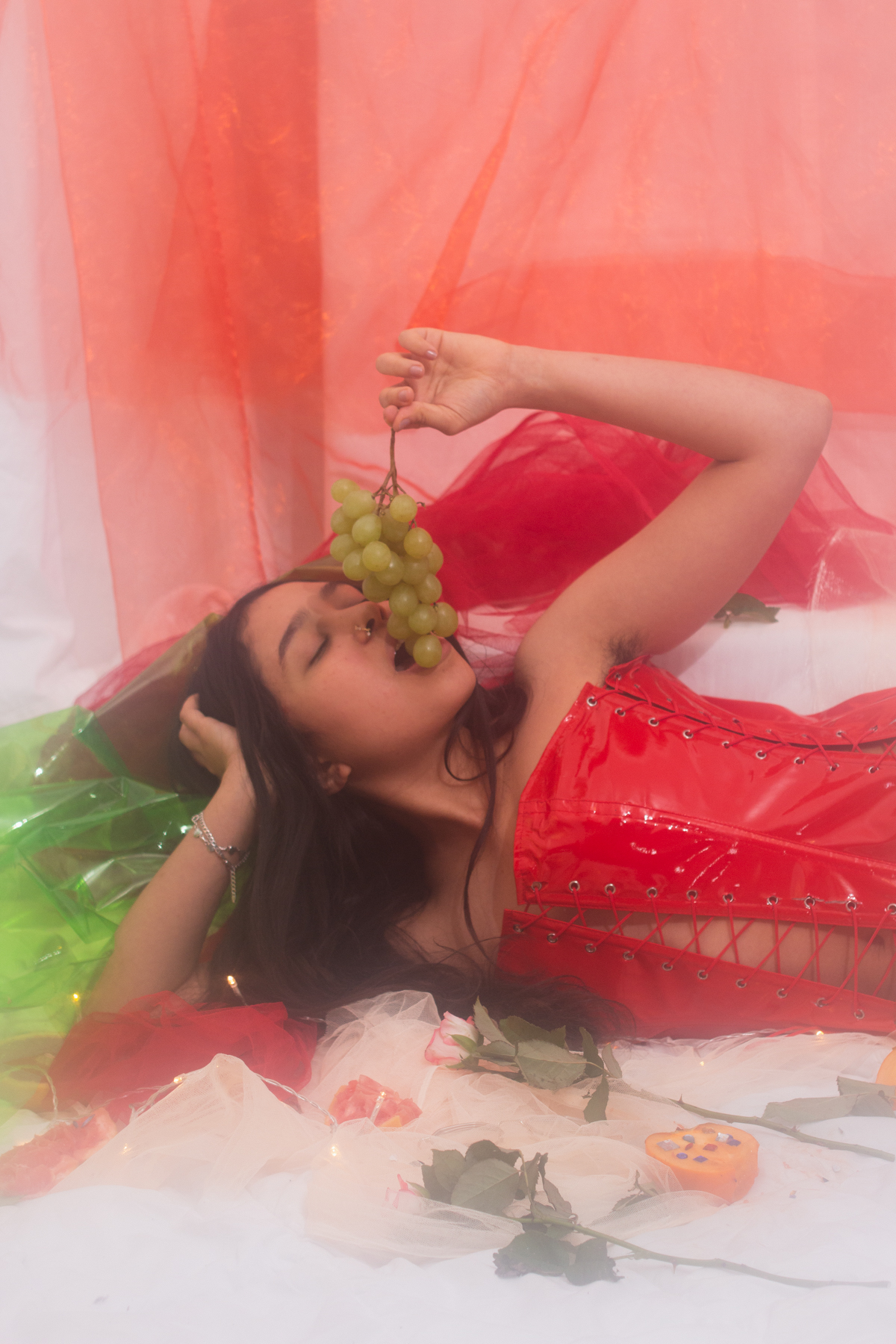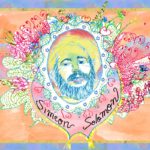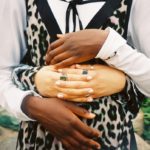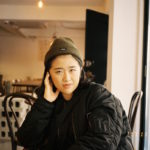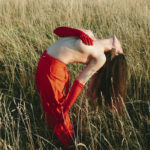Born into a prominent Jewish family in 1840 Solomon was the eighth child in a…
Rafaella Braga
Berlin's Emerging Brazilian Painter16 April 2020
Brazilian born Rafaella Braga is tracing her own path in painting by exploring it freely and unbiased. Focusing mainly on materialising a study of the self and its relation to the outside, she describes her paintings as a safe space where she finds her truth and can simply “be”. Her paintings are a “diary with a thousand possible interpretations” - YEOJA visited the aspiring artist in her studio and had a chat about her life as an artist, her past and her recent relocation to Berlin.
Your aim to transform what we fear into love is very appealing. That’s what art should be about: overcoming stigmas. Which of humanity’s fears do you tackle the most through your art?
Rafaella: My paintings helped a lot for my old self to deal with the fear of being rejected or judged, and for me to understand that when you fully accept yourself you don’t need validation from others. When you’re enough for yourself, negative opinions can’t have an effect on your soul.
You just moved to Berlin from Brazil, what changed for you as an artist?
Rafaella: Here, my paintings are my main source of money, which allows me to spend most of my time just creating. Back in Brazil, I used to work full time as a waitress and even had a moment where I had two different jobs, so it was difficult to focus on my art.
In fact, I didn’t even consider myself an artist as [at the time] it was a very abstract idea for me.
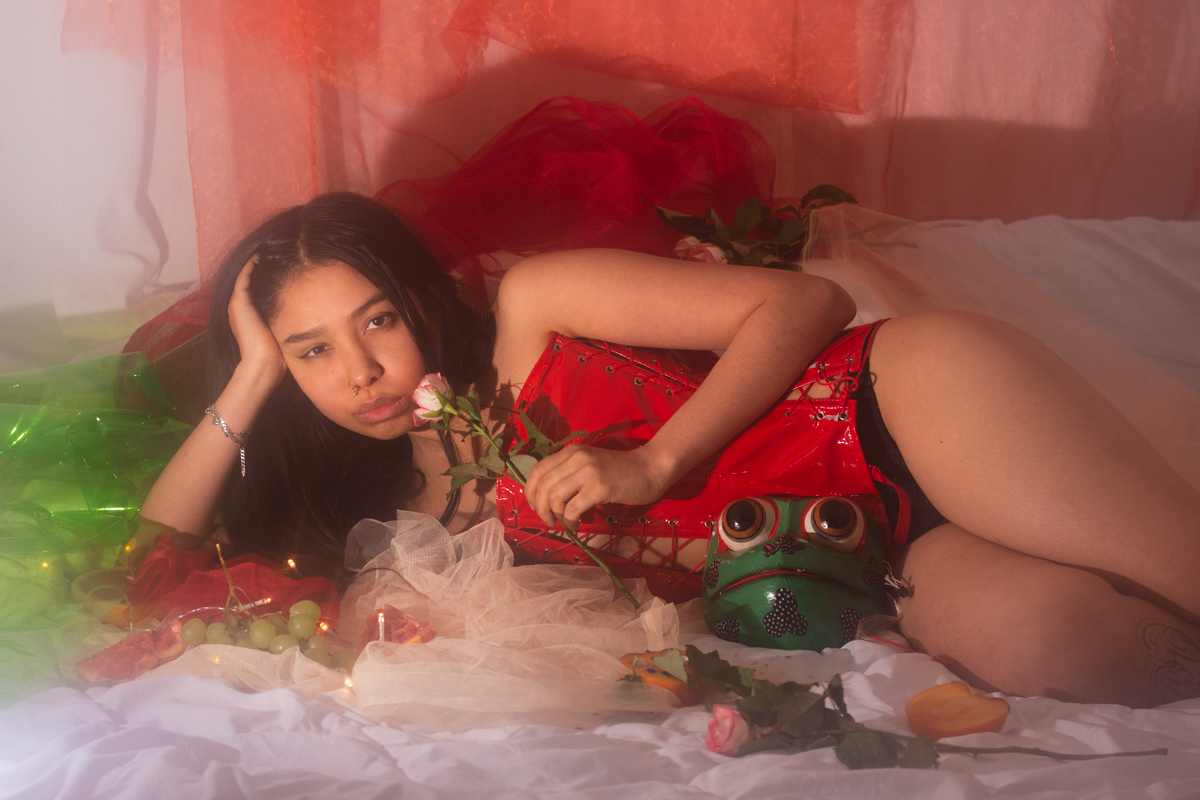
In your paintings you tell secrets and intimate stories in a very abstract way… do you feel like those who view your artwork consider it a riddle to be solved or, as a cohesive body of work that speaks as a whole?
Rafaella: Actually for me, even when the communication is clear in an art piece, it can still be a riddle to be solved for someone else, because it depends a lot on who observes it and how.
But anyway, I don’t care if you’re seeing what I see, the most important thing for me is to provide an intensely hypnotic moment for the viewer, where they can see themselves in my work and experience their true self while observing it.
Do you feel like the viewer’s perception of personal problems change after engaging with your art? Is art as a wider political commentary important to your creative process?
Rafaella: I feel like people reflect and get some deep thinking done. And that is a political function, to act like a window that provides insights and raises questions inside someone’s mind.
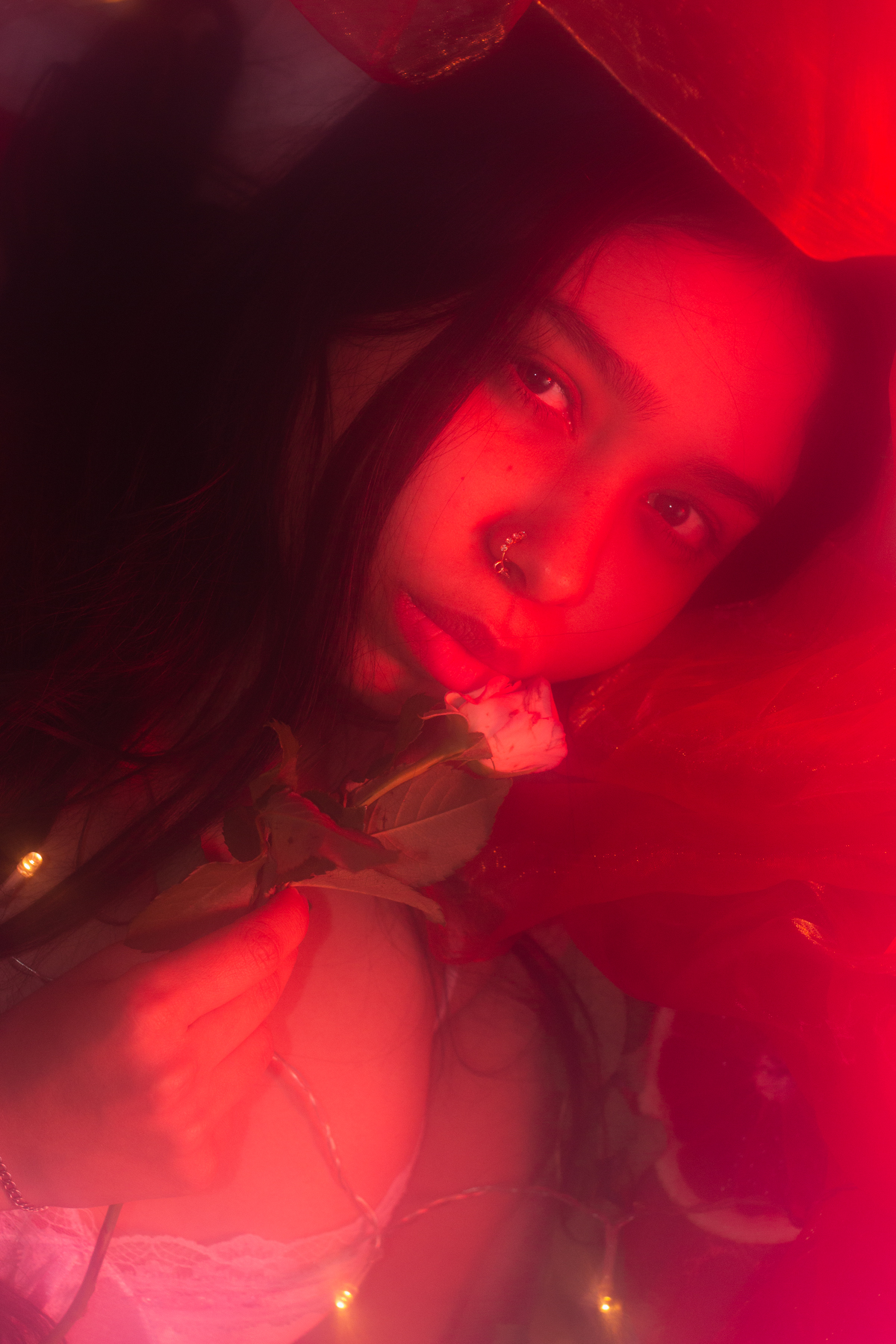
Let’s talk about feminine softness. When painting it seems like you open up about your personal struggles in an abstract and colourful way. Some people might view this openness as a sign of that softness. And yet this is a theme you mentioned moving away from in your interview with kaltblut-magazine. Can you elaborate on this?
Rafaella: When I say softness I’m specifically talking about the femininity that we are forced to perform as womxn. I run from this softness, from the social standard softness, from the gender boxes. While opening your true self and showing your deep emotions, it’s a pure softness, necessary for all human beings.
Your artwork seems to favour color bursting madness over pictorial realism. Was this always the case?
Rafaella: I used to work more with charcoal drawings and clay sculpture in the past. But since I started to paint, I follow this same style.
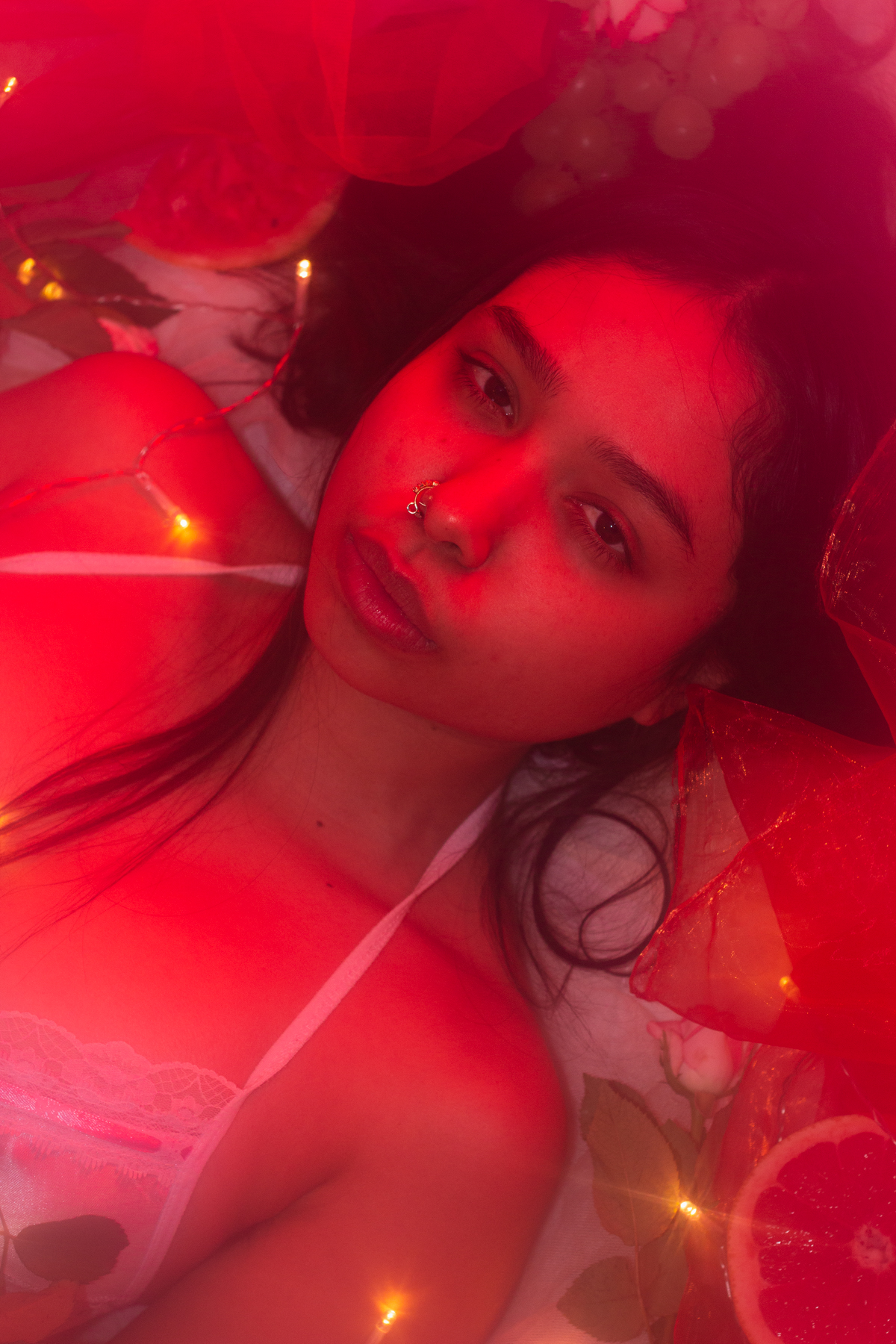
Posing in front of your canvas seems like a fitting background for you as a model. Do you view your art as an extension of your body, as the background of your existence, or is there another way you would describe the symbiosis between you and your artwork?
Rafaella: In one way or another, my body is political, and so is my art: from conception to final form. [This relationship] is an art registry, a historical documentation, and a political manifesto saying, “Hey, this is not made by a white dude. We are also capable of creating incredible things”. And I mean, every proud mama likes to pose with their kids.
Back in Brazil you were also creating street art. Can you talk about the difference between painting on canvas and painting on walls?
Rafaella: In the streets I didn’t paint, I “smashed” the city, screaming my existence for the oppression, knowing that I was creating much more for the adrenaline of the moment than for the work itself, because it can be removed even the next day. It was also another form of expression, with tags, pixo [São Paulo’s distinctive street writing,] and characters that denounced the city especially. But in both ways, in my safe studio or in the vulnerability of the streets, I feel like I’m always expressing myself deeply.
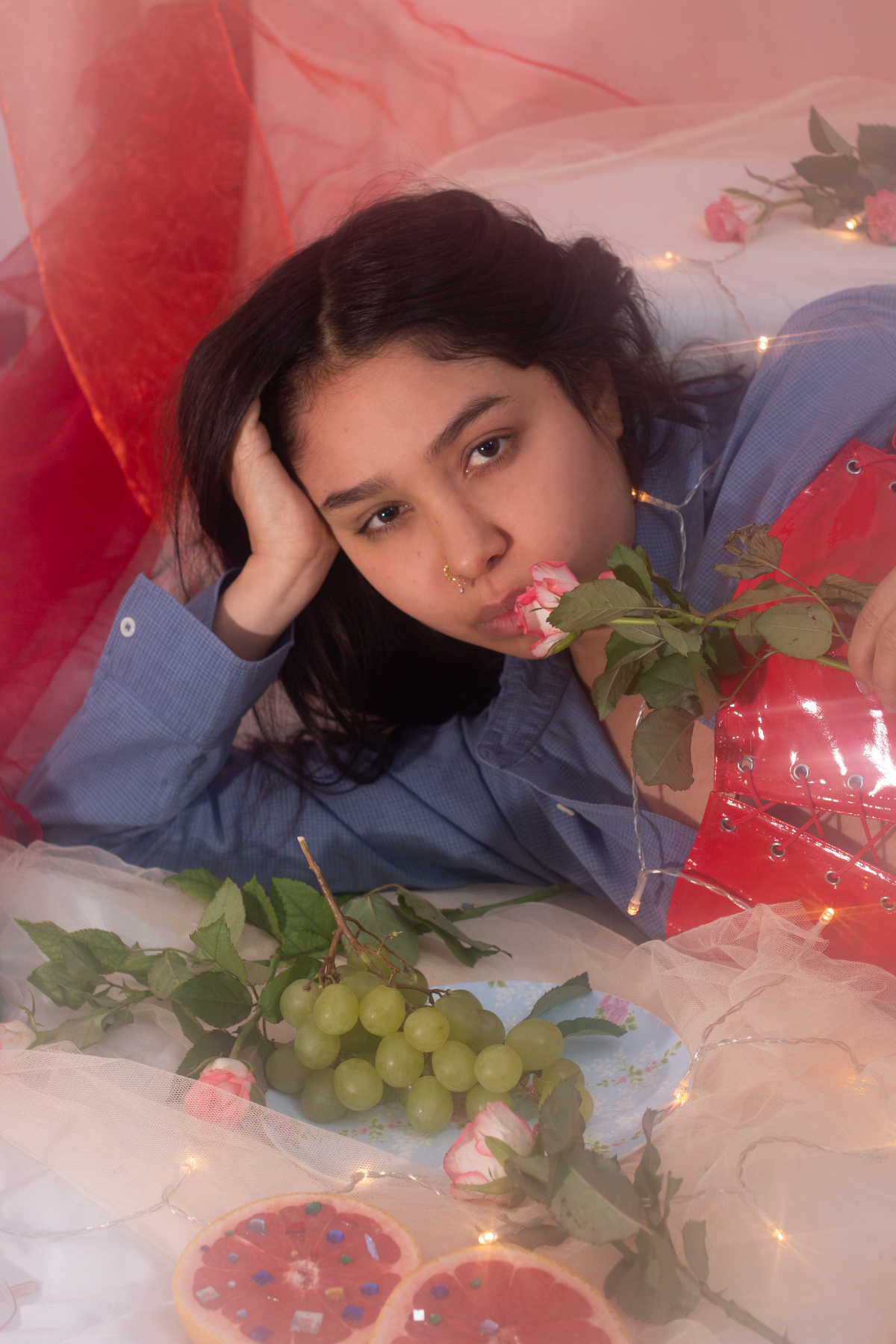
There appears to be different versions of the same face in many of your paintings. Is this figure part of a larger story you are telling?
Rafaella: Even without planning it, they’re all connected some way. I guess I have many personas inside my head.
In your interview mentioned earlier (in Kaltblut), you talk about “the surrealism of being in a body”. What do you mean?
Rafaella: If you look to a body from a surrealist way you have another perspective from the corporeal narrative. You can see that a body is much more than the image, it’s a malleable entity, with involuntary sensations and instinctive dynamics but still an imagistic language that you can change according with what you think about yourself, creating your own body inside this intangible nature of dreams.
You talked about being bereft of magic in your childhood. What do you mean when you say magic?
Rafaella: When you grow up dealing with the institutional violence and experiencing social inequalities in your daily life, you are not allowed to be a child, you are forced to give part of that magic away in order to survive.

Do you see painting as more than a ritual of self-healing?
Rafaella: I use it as a tool for change. But for me this is also part of this ritual of self, and universal healing.
Is there a creature, legend or goddess from traditional mythology that inspired your stance of being a womxn in the 21st century?
Rafaella: My ancestors inspire me. The mythology originated by my people before the Europeans arrived in our land inspires me. My grandmothers, both incredible healers, (known as Curanderas in Portugese), inspire me. They live inside me, as i’m the blood of all the womxn who walked before me and the seed that has grown from their roots.
And lastly, do you have any future plans for Berlin?
Rafaella: Right now I’m just thinking about my plans for this present moment so that I can create that future.
_
Original photography created by Sarah Hauber exclusively for YEOJA Mag. Follow Rafaella on instagram. For more art and culture, click here.



